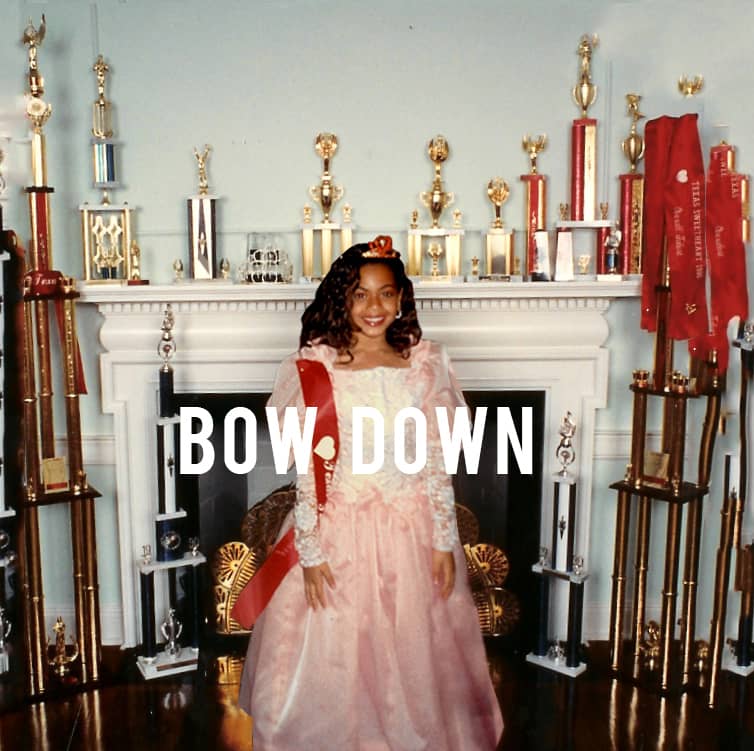7 steps to starting your business with a full time job

I had at least 3 failed attempts at running a business with a full time job before I got things right. I often wondered how other people managed to do it. But now I finally got it right, I can let you know how to start right. For the last 4 years, I’ve combined my 9-5 job with starting and growing my business Deluxe Childbirth Services. Today I’ll share 7 simple steps with you that have helped me effectively manage this leap of ‘craze’. Be clear on how much you really want your new business Why exactly do you want to start your business? Is it because everyone your age has one? Or is it because you don’t mind having multiple streams of income? Do you want to exit the rat race? Or do you want to provide solutions to challenges around you? There really is no right or wrong answer. The important thing here is to know your real motivation and write it down. Write down why you want to start your new business, your first year goals and what you are willing to give to see it become a success. You’ll need it to keep you going when the tough times come calling. Take a break to clear your head for action Your current job might leave you working long hours. If you add in the long commute to work and back home, it’ll leave you totally drained. This is why when you want to start any new business while working, you may need some time off to clear your head! My idea of time-off is at least three full days with no distractions. You’ll spend the first day resting to refresh your body and brain cells. Then you start thinking up your launch plans from the second day. At the end of this much-need timeout, you should have a list of the key actions to launch and sustain your business. These actions should cover the first 1 year, at least. It should answer when these actions need to be completed by, which of the actions you will complete yourself and those you will delegate to others, and who you’ll outsource to when necessary. Understand your fears and destroy them Dreaming about an idea and how it will blossom into a successful big business can be a pleasurable experience. Sometimes I wish that’s all we needed to do to make money from our hustles. Sadly, when it’s time to start, reality sets in and some people get scared. I know I did when I was about to start my current business. Most of the women I speak to also get super scared! But guess what? It’s okay to get scared. It’s even okay if the fear sounds flimsy, I was scared of my name being out there. What is not okay is letting your fears rule you. To move ahead with your new business idea, you owe it to yourself to understand why you might be afraid and conquer that fear immediately. Turn the needed actions into small tasks; pace yourself and celebrate success I know you might be tempted to take your new business launch on like you take on projects at work. You know, with that ready to bulldoze it attitude. But when it comes to your business, you might need to go a bit slowly. Remember that you’ll most likely work on your business after your regular work hours. By that time, your body and head will most likely be tired. So pace yourself, give yourself more than usual time to complete a task. And, once the task is completed be sure to give yourself a small treat. Be ready to work HARD My friend, there is no escaping this! To be a success at both your job and business, you need to work hard and be disciplined. While at work, focus on your job and deliver your agreed priorities with as much excellence as you can afford. And when you get home, focus on your business full-time. You may need to tweak your work schedule to include working on your business on Saturdays. This may mean sacrificing a lot of time, sleep and outings to work your business but you can be sure you’ll be off on a great start. Get an accountability partner/coach and have regular reviews with her An accountability partner is someone with whom you can share your dreams and plans. This person will constantly remind you on agreed deliverables. She is someone you really would not like to see upset when your regular reviews reveal that you are behind on agreed actions. Your accountability coach must be someone who is genuinely concerned about you. She is someone who wants to see living your dreams, not someone who will kill those dreams. Recognize His grace and ask for help I believe we are nothing without God’s grace. As such, I always advice acknowledging this and asking for His help because really what you are about to go into is not an easy task. Once you are clear on your business ‘goals, it’s a good idea to ask God for the strength and capacity to do more. You want an environment free of obstacles and stumbling blocks so you can close out tasks faster. Most importantly ask for opportunities at work and in your business where you can shine brightly with little effort. So there you have them! Start out today and keep me posted on how it goes. If your job is flexible and not as demanding as most jobs…count your blessings and make it work in your favour!
5 things you should be doing after work hours to be successful

If you don’t know that the time you spend outside the office has a big impact on your career, you really need to. When you return home after closing at work, the first thing on your mind may be rest, food or curling on the couch to watch reruns of “Grey’s Anatomy”. Don’t do it. Time is very precious and if you’re aiming to be highly successful in your career, every minute counts including the time you’re not in the office. We’re not saying you should have work on your mind 24/7, but what you do after office hours can either build your career or hold you back. Highly successful people know this and that is why they engage in some of the following activities when work is closed for the day. 1. Work Out There is a reason some Japanese companies host exercises for their staff. Working out keeps you alert and is a great stress reliever. It’s also a great way to regain the energy that literally drains from you while you’re seated at your desk for hours on end. Exercising helps to increase your productivity which ultimately gets you working towards your career goals. 2. Network & Connect Networking is an important after work activity. But there’s good networking and there’s not so-good networking. The former gives you the chance to engage in deep, meaningful conversations with others. We’ll leave you to guess what bad networking looks like. If you have the opportunity to network after work, grab it with both hands! Connecting with colleagues, friends and/or mentors may even lead to brilliant ideas that could positively impact the course of your career. 3. Unplug Turn off everything, your laptop, your TV, your phone, your iPad too. You need time away from devices and the Internet to renew your mind, body and spirit. The close of a work day provides a great opportunity to unplug and ensure work is left behind at the office. If you find yourself bored while unplugging, meditate or read. The most successful people are known to always read books, fiction and non-fiction alike. 4. Make plans for tomorrow It’s best practice to plan ahead for the following day. Review your calendar every night and ensure you have everything ready for tomorrow. Check through so you have enough time to notice if anything is missing and then get things in order. This saves you the stress of panicking in the morning because you forgot something important. 5. Don’t forget to sleep Highly successful people sleep for more than eight hours. It’s true. Don’t be under the false impression that staying up late is good for you or your career. Adequate sleep is a wise career choice, if you’re not getting enough sleep it could affect your judgement and mood. Even worse, chronic sleep deprivation can lead to serious health problems. What do you spend your time doing once you’ve closed from work? Kindly share them by leaving a comment below.
What you need to get the most out of your mentor

Behind every successful woman, is a mentor. Someone who, at some point in their lives, helped guide them in achieving their own goals and dreams. Have you ever wondered how most world-leading entrepreneurs or business women became successful? The common myth is always that it was effortless –involving the least amount of struggle. That myth is never ever true. At the beginning of a career, or at the start of a new business, you may find that you are unsure of how to and pursue your dream. You have the end goal in mind, but the process of putting it into effect and finding direction can be a huge mountain to climb. Although learning through experience on your own is important, getting guidance on how to pursue your goals intelligently can very helpful. Having a mentor who can help guide you through the stages of your career does make it a little bit easier. First set your goals Mentorship, whether in entrepreneurship or corporate, is based on the same core principles. It is to create a relationship for the betterment of you, the mentee and your mentor. It’s extremely important that both parties create an environment of learning and growth. With this environment in mind, both your mentor and you should work together to set your mentorship goals for short, medium and long term. Giving yourselves goals helps in keeping the relationship from becoming too lax in achieving any kind of visible growth. It also sets the stage for a great working relationship. From my own experience, a good mentor also wants to see the goals you want to achieve. This helps them get a better view of how to can help you. One of the most important things a previous mentor taught me is the importance of putting your goals onto paper. And it works! Goal-setting will give you the opportunity to identify where your life is life to be heading. In turn, goals and expectations give both you and your mentor a common understanding of what the relationship is meant to achieve. Adding detail to your short, medium and long term goals will be beneficial in creating your career development plan. This plan can be used as a guide. It will allow you to communicate clearly what you want to achieve in a specified amount of time, and have your mentor to help you achieve those goals in the most focused way possible. Having a plan in place, and having a mentor guiding you through your growth process can help you grow. This will get you to where to where you want to be faster than you thought. Then establish a relationship In order to establish a good mentorship, and for you to be able to succeed in the industry of your choice, some important factors should be considered: Receiving valuable advice: You receive valuable advice from your mentor. As the mentee, you gain insight from your mentor into your ideas. Not only that, you get help on using that advice as a guide to achieving your goals in the most efficient way. Assistance with building strengths and overcoming weaknesses: As part of the goal-setting exercise between you and your mentor, you’ll need to discuss ways your mentor can help you overcome weaknesses and build strengths. Identifying your skills and competencies will help you know where your strengths lie. New ways of thinking: A mentorship allows for a way to bounce ideas off each other and gives you an opportunity to discover new ways of thinking. Win-win for both A mentorship should be a win-win situation. Both parties should be fulfilled in the mentorship. The mentorships that work are usually between people that want to make the relationship work. You will need to be engrossed in the growth of your career. And your mentor should have a sense of fulfillment from helping an up-and-coming young person. If it isn’t fulfilling both parties, then it makes no sense to waste each other’s time. A mentee and mentor need to find a formula that works for them, and stick to it. One of the biggest mistakes you can make as a mentee is thinking that the mentorship is one-sided. Inasmuch as you approach a mentor to learn and grow, the same applies for your mentor as they too have goals to pursue. Just as you receive the chance to learn from a more experienced individual, your mentor will receive an opportunity to pass on what they’ve learned in life.
3 subtle ways to increase your daily productivity

Daily productivity can sometimes feel so elusive. We all the many goals we would like to achieve each day. We easily make our to-do lists and set reminders then distractions get in the way. By the end of the day, we’re left feeling like we could have achieved more, and wishing that there were more than 24 hours in a day. I’ve faced the same challenge. But with a few adjustments to my daily routine, I have been able to cope better. Here are three subtle changes that really help with increasing your daily productivity when you add them to your routine. Choose your outfits the day before If you’re going to work or attending a meeting tomorrow, you need to select everything you’re going to wear today. When I say everything, I mean everything. From your underwear to the mascara you’ll be using, to the shoes that will match your outfit and the jewelry you’ll wear. I have been a victim of casually deciding on outfits to wear…only to discover in the morning that the outfit needed a camisole, and then discovering that I could find said camisole. Everything got frantic from then on. I sent clothes flying in the air while muttering prayers and curses concurrently. Do you know how much time you would save each morning by just planning ahead? If you’re able to do this effectively, you would have some time left over to jot down your thoughts or create a to-do list for the day. Trust me, you would start the day all calm, composed and dignified. This will be a huge boost to your daily productivity. The woman rushing around in search of a missing earring while hopping on one foot as she tries to locate a second shoe only looks cute in romantic comedies. In real life, it’s just a mess and brings about unnecessary stress which you do not need. Journaling for side-hustle success You know that spare time you have at work to complain about Nigeria, your boss or whose turn it is to buy the office provisions? Or those times you waste daydreaming about a much needed exotic vacation (when you’ve actually exhausted your vacation days)? What about those other times you wished you had more time during the day to take note of your creative ideas? It’s time to start using your spare time wisely. Get creative and write in a journal. As a writer with a 9-5 job, I carry a journal with me everywhere. In it I write down random thoughts which eventually become poems, stories or essays. But journals aren’t only for writers. Everyone can benefit from a journal. It’s a place where you jot down the random ideas you have throughout the day, and which you can review when you have some down time. You’ll be surprised at the end of the day how many ideas you’ve come up with. Journaling also reveals things about your psyche. What you write down randomly could reflect your state of mind and highlight areas in your life which you might need to improve on. This will take you one step closer to achieving your desired goals. If carrying a journal can’t fit into your designer bag, use your phone to capture your thoughts. Do whatever is convenient for you, just make sure your thoughts don’t fade away. You are what you read: The social media feed conundrum This, for me, is one of the most important things towards subtly increasing your daily productivity. So, you complain about not getting enough information about your areas of interest. Yet your social media feeds are only for entertainment, gossip and videos of cats playing pianos. Can you see the problem here? Social media is a very useful tool for absorbing information in our digital age. Whether we like it or not, we need to consciously moderate our feeds to reflect our interests and aspirations. Let’s face it, I enjoy a good meme. Who doesn’t?! I spent hours on the internet last year laughing out loud to funny pictures inspired by Drake’s “Hotline Bling” video. However when I began to write, I started to follow blogs and forums which reflected my interests. I signed up to Reader’s digest, Writer’s digest, Grammarly, The Sparkle Writer’s Hub, The Reading Room, Writing Tips and of course, She Leads Africa for daily inspiration and motivation. Think about the amount of time you spend on Facebook, Twitter, Instagram and other social media daily. Is it a normal part of your day to idly scroll through your feed? You should try to make this activity as intellectually stimulating as you can. If you can’t let go of your social media pastimes, consider multitasking to increase your daily productivity. If, for instance, say you usually spend your lunch break playing Candy Crush on your phone whilst eating. You could use that time to browse the internet for topics related to your areas of interest instead. This is not an exhaustive list, but it’s definitely a starting point to increasing your productivity as a #MotherlandMogul!
Why you need to set career goals each month

All successful people have career goals. We know a full time job can make it challenging to achieve said goals but this doesn’t make them any less important. As career-focused young women, the goals we set are our career objectives. They are an essential part of progressing up the career ladder. A great way to make sure you are on top of your career goals in a timely fashion is to break them down monthly. This means you’re only focusing on one goal a month. Your monthly goals can range from learning a new skill or updating your LinkedIn account to asking for a promotion or improving your relationship with co-workers. The choice is entirely yours. Not convinced? Here are four reasons you need to set monthly career goals. Flexibility Let’s be real, when you set yearly goals, you do so blindly. There’s no way of knowing how each month in the year will pan out. Monthly goals allow you to properly consider the time period in which you’re setting your goals. That way you’re flexible enough to consider any drama that may come up. It is as the year moves on that the best times to focus on certain activities are revealed to us. Imagine this, you update your resume January every year. What happens when you change employment within the year? Will you wait until the following year to update your resume again? Now if you take our advice and devote a month to brushing up your resume, you have more than enough time to create a master version saved for when you need it. Easy tracking Monthly goals are easy to measure. You know, tracking your progress towards achieving your goals is just as important as setting them. Tracking makes it easier to move on to new goals when you’ve achieved others. If you set goals yearly, you may end up forgetting some of your triumphs when it’s time to evaluate. Seeing what you’ve achieved on a month-by-month basis is also a huge boost to your sense of accomplishment. You’ll be surprised at how much you get done in a month. Better focus Taking things one month at a time allows you to focus, making goals much more achievable than otherwise. You can devote a month to forming better work habits and increasing your productivity. Very specific right? Trust us, by the time you spend thirty days focused on one thing, you would have developed habits that will have a lasting impact. You can set a month aside to learn something new. This is especially useful for those slow seasons at work where you have more free time. Time management Setting monthly goals is a great way to manage your time while also saving yourself from too much stress. If you’re following our advice (and you should), you may set one or two ultimate goals for the year then focus on one aspect of your career each month. This way, each month, you’re one step closer to achieving your ultimate boss goals. You can even go further and set weekly and daily goals. As an aspiring #MotherlandMogul do you set goals every month? Let us know what your goals are in the comments section below.
I Quit! How to write a letter of resignation

Hi, I quit! I was too good for this job anyway. Kiss my a** and don’t bother contacting me. P.S. Just to let you know, I was the one who ate the jollof rice you kept in the fridge that time. Let’s be honest. How many of us have imagined sending a message like the one above before heading to your favourite suya spot for a treat yourself episode? When you’re leaving one job for (hopefully) better opportunities, you may want to use the opportunity to air grievances. This may provide temporary relief but you can’t burn bridges. Resignation letters go on file and you won’t want to come back for a reference only to be confronted with an unprofessional resignation letter. Here is a step-by-step guide to writing a letter of resignation. The opening Even before sitting down to write your letter of resignation, you will need to sit down with your boss for a one-on-one session informing them of your resignation. Now, you’re ready to write your letter. The opening of your resignation letter should be friendly but formal. It’s a fine balance to maintain but it can be done. The most important thing is to remain professional at all times. Your letter’s salutation will depend on your relationship with your boss and the level of formality in your place of work. If you’ve been calling your boss Kemi all along, there is no point in writing “Dear Ms. Ade”. Ditto if it’s the other way round. Motherland Mogul Tip: Don’t forget to add the date. It should be aligned left, above your boss’s name and work address. The body Don’t beat around the bush and don’t sugar coat anything. You should state your intention to resign clearly. This way your boss doesn’t think you’re open to being convinced to stay. It’ll be quite uncomfortable having your soon-to-be former boss throwing in a higher salary to an attempt to halt your resignation. Crystal clarity also shows that you are confident in your decision. A simple, “Please accept this notice of my resignation from my position…” will work great. Some advice stating your reasons for leaving but this is a must-do. Give as much details as you’re comfortable with. Motherland Mogul Tip: Don’t forget to state your last date of work. Give your employer as much time as stated in your contract. For most, it’s a month’s notice. The conclusion As you’re being nice and professional, you should offer with helping any transition. This will usually involve training whoever will be replacing your soon-to-be vacant position. Be careful not to promise what you can’t deliver. Round things up neatly, based on how much information you included above. You may want to add in more details about your departure if you’re really close to your boss. Sign out with “warmly” or “king regards” or even “sincerely”. Motherland Mogul Tip: Don’t forget to thank your employer for the opportunity. Finally read through your letter, over and over. You’re looking for grammatical errors and typos. There should be no trace of hostility, remember you’re not burning bridges. Have you written a letter of resignation recently? Did you make any blunders? Let us know your experience by leaving a comment below.
3 things to do when your academic background and your career are worlds apart

There is an indescribable joy that is experienced by a Nigerian who has just graduated from an institution of higher education – what a delightful feeling! No more paying of exorbitant school fees. No more buying of handouts from lecturers under duress. No more dodging from sleazy lecturers. No more coping with below-par study situations. Surely, things can only get better from then onward. However, when the time comes to seek out and secure gainful employment, the graduate would soon realize that she has jumped from the fabled frying pan into the fire of reality. If one was disillusioned by the undergraduate experience, a greater disillusionment awaits such an individual when faced with the task of finding a job which matches their actual field of study. According to the National Bureau of Statistics, Nigeria’s unemployment rate rose to 7.5% from 6.4% in the first three months of 2015. There are therefore too few jobs for too many graduates, and so graduates often have to grab any job they are able to get with both hands. A lot of my contemporaries who work in the Nigerian banking sector, for instance, did not study anything remotely related to banking or finance in their various tertiary institutions. They studied courses like Microbiology and Applied Chemistry; they took banking jobs because those were the jobs available, not necessarily because they had a deep love for finance. So, what do you do if you find yourself in such a situation? Here are 3 ways to make the most out of it. Adapt your learned knowledge to your current job For instance, if you are a Political Science graduate who has, after a long job search, gotten a job in a Bank as a Marketing Executive. You should try to think about the aspects of studying Political Science which you could adapt to your current situation. These would include things like Being able to undertake thorough research (in this situation, research on your target market). Being apt at writing reports. The ability to analyze situations from different points of view. When you approach the situation in this manner, you would perform well at your job, and you may even start to see it as a long-term career, rather than a temporary situation. There is an added bonus if it turns out that your personality happens to match your job; so if it just so happens that you’re very charming and persuasive, your job as a marketer would be more tolerable for you. Sell yourself For this step to work very well for you, you must first ensure that you put in your best in any job situation in which you find yourself for the duration of time you are there. Then, if you decide that you want to move on from the job, you have to pitch yourself as an expert in your current job, who just happens to also be an expert in your academic field of study. If I was the hiring manager of an organization, I would be very intrigued by a candidate who is a trained microbiologist who currently works as a marketer at a bank. It is now up to you, as a job applicant, to really demonstrate how those experiences would make you a very desirable candidate for the advertised role. So, you must always ensure that you are excellent at your job, even if it isn’t where you thought you would end up; that excellence would most likely be your stepping stone to future success. Don’t give up It is very easy to get disillusioned when, after months or years of searching for a job, you end up with a job that is unrelated to your field of study. Some graduates end up seeing the job they have gotten as one which they are okay with doing on a long-term basis. If this is not the case for you, please do not fret or get discouraged. Keep applying for the job which you desire, while making sure that your skills in your field of study are up to date. Take online courses if possible. Read up on new trends in that area of expertise. Try to get a mentor to guide you on your journey. If it is possible, try to volunteer in some way to keep your knowledge in that area up to date. Whatever you do, try not to be sad about the situation. While you do all this, you must strive to maintain optimal professionalism at your current job. Having a job which doesn’t have anything to do with your field of study might be source of irritation, but not having a job at all is an even worse situation. Have you experienced such a situation on your quest to become a #MotherlandMogul? Kindly share your experiences in the comments section below. Don’t give up!
QUIZ: Are you a boss or a bitch at work?

Relax. We haven’t even gotten started yet and some of you probably read the title and already got excited about boycotting us. Let us land please. It’s hard enough out there in the corporate world having to balance office politics, sexism and your freaking workload not to mention those coworkers that can make life unbearable. But what if the unbearable one is actually you and you never knew it. It might be time to check yourself and figure out if that sassy attitude you’re bringing is actually helping or hurting you at work. We aren’t saying that you should change your personality just for your job, but knowledge is power and if you’re not getting the results you want in your career it could be because you’re not aware of how you’re coming off. Or you could be a solid team player and just need an extra boost of confidence to keep you focused on your goals. So which are you, the confident goal-getter ready to get her life or the insecure, envious one looking for underhanded ways to bring down her colleagues? Take our quiz and find out! [viralQuiz id=4]
Young women and marriage: 3 conversations we keep having

Some days ago on a road trip to IITA Ibadan for my company’s annual retreat, there was this huge debate between what I have chosen to call the new school modern family values enthusiasts and the old school traditional family values enthusiasts, over married women and their career choices/decisions. It was a long and interesting conversation, voices were raised, opinions flew back and forth, words were exchanged (although with no ill intents), feelings and sentiments were bruised, perspectives were vehemently challenged and even faith was questioned. At the end of the trip (and as such the conversation), there was no victor and no vanquished, proving (yet again) that: Opinions are formed over time, experiences and the accumulation of a body of knowledge and it takes more than one heated conversation to get people to change those opinions. Back to the reason we are all gathered here today, I think that because of my age, most of the conversations I have with family, friends, acquaintances and even colleagues are pivoted around, you-guessed-right! Marriage. So, while we talk business, entrepreneurship, career and our shared ambition to take over the world, we should also take a moment to address the pink elephant in the room. So, tag along while I attempt to dissect some of the concerns we young women have when it comes to the institution of marriage. The validity of aspiring to marriage With Chimamanda Adichie’s 2013 TED talk (made even popular by Beyonce’s inclusion in the song, Flawless) finding its way into mainstream culture and conversations, we women are gradually being liberated from that flawed conviction that marriage is the gold standard and a ‘mark of success in life’. While this can be called progress in some ways, it also has its downsides. Hold on, let me explain. The feminist-driven academic and journalistic culture celebrating today’s “liberated” women, also in some ways, seeks to suppress a natural need for family that most women have. In recent times, there has been a blizzard of anti-marriage sentiments shared vocally among the female folks especially across social media platforms like Twitter and Facebook. And this is largely because most of them do not want to be seen as aspiring to marriage but hand on heart – and this is quite controversial. I do not know of one woman who does not want to have her own husband and possibly children to come home to after a long day at work. When discussing the issue in an open and public platform, most young women would be quick to put up an air of indifference with respect to marriage but get her alone and the story would be entirely different. There, I’ve said it! (But let’s not forget that this is an entirely unscientific view based only on my circle of friends, acquaintances and interactions with random people). Therefore, my take on this issue is rather simple: as much as marriage is not the holy grail of womanhood, I think wanting to be married and subsequently aspiring to it, is valid! As such, you are allowed to be intentional about it, as you are with work/business. (For more on this please try reading this from Dr. Meg Jay). The dichotomy between marriage and work In 2011, the COO of Facebook Sheryl Sandberg made a statement that went viral; “The most important career choice you’ll make is who you marry.” I only came across this statement last year and it was insightful for me because it reaffirmed a conviction that I have always held and still hold; that the man I marry would take me one step closer to my biggest dreams. Before going further, I should clearly state that I have nothing against stay-at-home mums. On the contrary, any woman who readily gives up the fancy skirt suits and board meetings for house cleaning and grocery shopping has my respect. However, I do not think that marriage and even motherhood has to be a stumbling block on a woman’s pathway to progress. Society typically expects the woman to lean back and make only those career moves that are convenient for her status as a married woman but that does not always have to be the case. Family is a collective and shared responsibility placed equally on both the man and the woman even though both have to function in different capacities. With proper planning, communication and understanding between partners, I believe it is possible for both to raise a decent family without anyone’s dreams or goals suffering for it. This is where Sheryl’s statement becomes important. Because for this to happen and for this system to work, you need a man who acknowledges the validity of your dreams, believes in the weight of your ambitions and is ready and willing to support you towards reaching your goals regardless of what that ‘support’ might involve. So yes, married or single, you are allowed to aspire to heights unimaginable in your personal and professional life and marriage if done right, would serve as a catalyst and not a distraction. Knowing when enough is enough! There are reports that say that every fourth Nigerian woman suffers some form of domestic violence in her life time. The worst forms of these are usually battering, trafficking, rape and homicide. And it seems only sensible that I lend my voice to this recurring social menace that is plaguing our society, the institution of marriage and women in particular. This is however not to say that men do not suffer domestic abuse or to disregard that possibility. On this issue, there really isn’t so much I have to say that would be entirely new to you but this, LEAVE! If you unfortunately find yourself in an abusive relationship, before you consider any other solution or any form of therapy, get yourself out of that situation and environment. No man is allowed to hit you out of love or in an attempt to discipline you or for any other reason that you may want to let yourself believe.
Email like a boss : Ingredients to cook-up stellar professional emails

Professional emails are to a business what healthy food is to your body, vital! You eat healthy foods to get a stronger body and longevity. Similarly, professional emails are necessary to the fruition and strength of any business. The ability to communicate thoroughly with neutrally progressive language is imperative to achieving your business or career. It seems challenging and tricky, but like every healthy habit, consistency is key. Here is a checklist to cook up a healthy and effective professional piece of art with your own clear and personable touch. Subject – Perhaps the shortest but most influential part of your email The subject is what gets the reader to open your email. Too bold and it’s regarded as spam, cheap or unimportant. Too dull and it’s forgotten. Both extremes run the risk of not being read at all. Be specific and hint a reason for their urgent attention. If time sensitive, state a deadline, i.e., “Please reply by [date]”. Greeting Salutation – Greet your reader accordingly If the reader is in a different time zone, no need for day-relevant words (morning, afternoon or night). The simplest greeting is “Dear, [name].” or “Hello” If you aren’t sure who your reader is, “ To whom it may concern” is another option (though I don’t recommend it.) Introduction – Compliments and pleasantry and Introduce yourself (2 sentences) Begin the body of message reminding them of who you are. “Thank-you”s or “it was great meeting you at [name event]” are subtly pleasant ways of reminding the reader of who you are. Setting a genuine tone at the start your message goes a long way. If you are familiar with your reader, pleasantries such as “ I hope all is well with you and yours,” works wonders. When introducing yourself for the first time, keep it brief and relevant. If you and the reader are already acquainted, rely on your well crafted signature (at the end) to speak to your current endeavors. Reason for email – Purpose (1-2 sentences) This is where your purpose resides. Use the “One Thing” rule. What do you seek and how does it serve your purpose? Brainstorm ideas before you start your email. This way, you can establish why the email is relevant to the reader/recipient, and have it laid out clearly and accurately. Call of action – What are you asking for? What actions need to occur to have the mission possible? What do you need from the reader? Be accurate, clear, and reasonable. If it takes longer than two sentences to describe this portion, listing them in bullet point is the best way to go. Bullet points are easier on the eyes and more importantly easier for your reader to note them down. Remember the one thing rule, how do your call for actions affect your purpose? Closing message – Close as you started, genuinely (1-2 sentences) Every email you send should be important. If your email is time sensitive, state a time and date you would like to hear a response, so there;s a sense of urgency. If it isn’t time sensitive, say so respectfully and tactfully. One such statement is, “I hope to hear from you at your earliest convenience.” Closing Salutation and signature To keep things simple, professional closing salutations can be short, “Best”. Your signature should not exist in the body of your email. Mention your name, title, link to business address and your contact information. This way, you have a short yet effectual platform to speak of your current phones. So there you have it, a checklist of all the structure that a professional email needs. Whether you are sending this professional email to a client, co-worker or potential employer, this checklist will have you getting responses in a jiffy.
